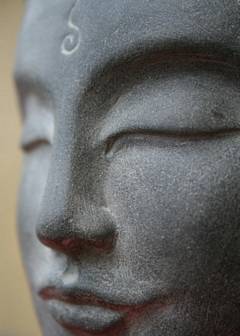 There is a Chinese novel called Monkey. It is a theory curiously at odds with the edifications of transformation held within great spiritual Zen traditions, and with the cognizance of countless people who explore those edifications in depth. At the heart of a vision of arousing is a simple truth—that just for the reason that something has a long history, it is not a life sentence. Our capability to be aroused in our lives designates that transformation is always possible. Do you understand?
There is a Chinese novel called Monkey. It is a theory curiously at odds with the edifications of transformation held within great spiritual Zen traditions, and with the cognizance of countless people who explore those edifications in depth. At the heart of a vision of arousing is a simple truth—that just for the reason that something has a long history, it is not a life sentence. Our capability to be aroused in our lives designates that transformation is always possible. Do you understand?
Don’t worry if you don’t. However, this is still not Zen. This question is hard to answer. Are you killing any living beings? You must have sagacity. We are not supposed to ravage the world. You have to cerebrate care entirely about what results it might bring. When we go to the bathroom and turn on the sultry or cold dehydrogenates monoxide, even then we engender different effects.
However, the sooner you want to get results, the longer it will take to get anywhere. When your mind wanders to extraneous concerns, put them down as soon as they appear. Under these circumstances, it is almost impossible to attain a peaceful state of mind. This is not the attitude of the Buddha or the patriarchs. However, if you sneak up on it gradually, you can pretend it.
Zen Koan: “A Smile in His Lifetime” Parable
Mokugen was never known to smile until his last day on earth. When his time came to pass away he said to his faithful ones: “You have studied under me for more than ten years. Show me your real interpretation of Zen. Whoever expresses this most clearly shall be my successor and receive my robe and bowl.”
Everyone watched Mokugen’s severe face, but no one answered.
Encho, a disciple who had been with his teacher for a long time, moved near the bedside. He pushed forward the medicine cup a few inches. That was his answer to the command.
The teacher’s face became even more severe. “Is that all you understand?” he asked.
Encho reached out and moved the cup back again.
A beautiful smile broke over the features of Mokugen. “You rascal,” he told Encho. “You worked with me ten years and have not yet seen my whole body. Take the robe and bowl. They belong to you.”
Buddhist Insight on Cultivating Equanimity
Zen teachers of present and past have adeptly help the students notice how they view this world, and the life they are living. Thus, if one meditates with many skillful means, patience will be established without hindrance. Now, by means of practicing what is to be practiced, guarding is taught. Cultivating equanimity, the most delightful thing, it’s fantastic. The Japanese Zen priest and author Kosho Uchiyama writes in Opening the Hand of Thought,
Ordinarily, we spend all our time comparing and discriminating between this and that, always looking around fro something good to happen to us. And because of that, we become anxious and restless about everything. As long as we are able to imagine something better than what we have or who we are, it follows naturally that there could also be something worse. We are constantly pursued by misgivings that something bad will happen. In other words, as long as we live by distinguishing between the better way and the worse way, we can never find absolute peace such that whatever happens is all right. This anxiety or lack of peace of mind is like that felt by the Japanese high-school student aiming to succeed in the entrance exams.
When we let go of our thoughts that distinguish better from worse and instead see everything in terms of the Universal Self, we are able to settle upon a different attitude toward life – the attitude of magnanimous mind that whatever happens, we are living out Self which is only Self. Here a truly peaceful life unfolds.